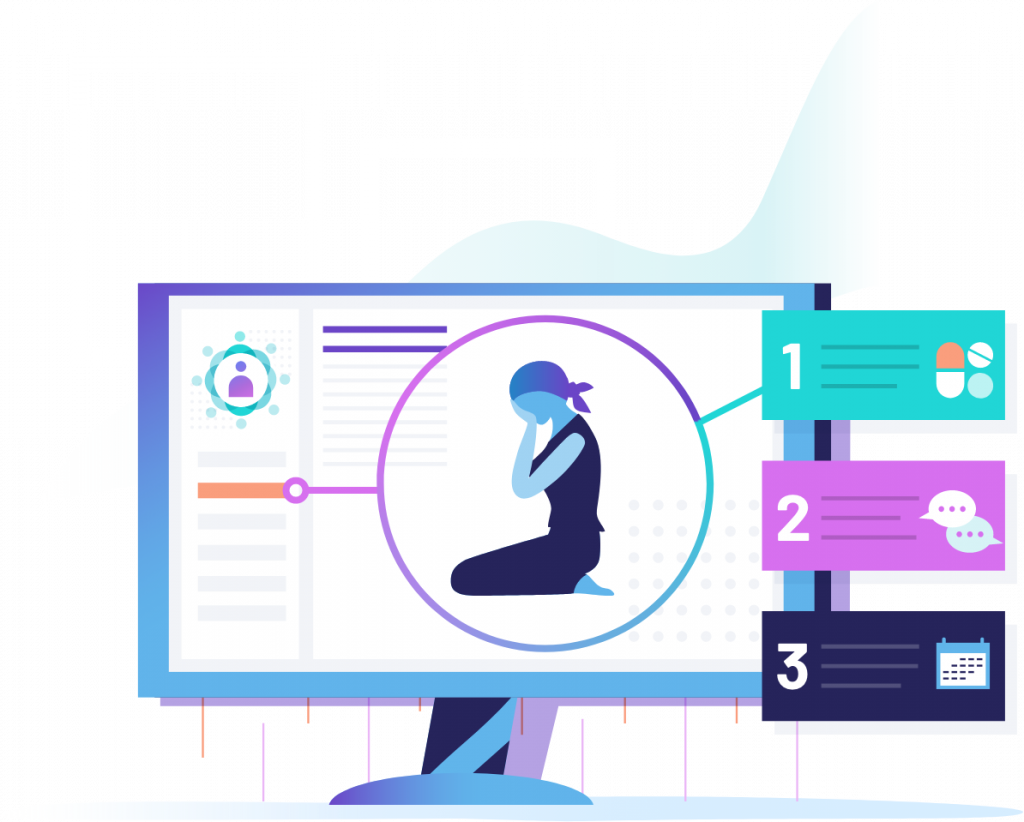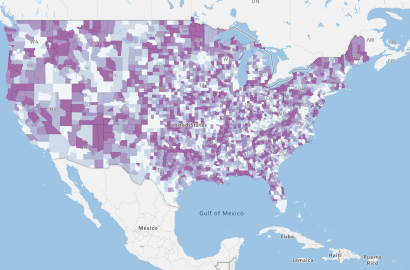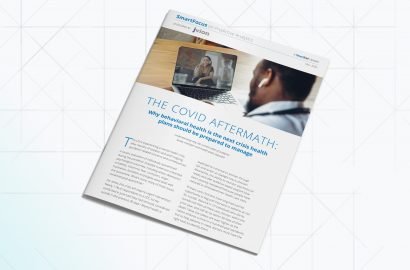
Behavioral Health
Clinical AI that Identifies Individuals on a Path to a Behavioral Health Event
An estimated 57 million US adults have behavioral health conditions, and people with these conditions also often have a higher risk of having poor physical health, according to the National Survey on Drug Use and Health from the federal Substance Abuse and Mental Health Services Administration.
However, millions of people in need of mental and behavioral health services fail to get treatment each year, Mental Health America reports. One in eight visits to emergency departments (EDs) in the United States will involve a behavioral health disorder. With the Jvion CORE™, behavioral health specialists and other care managers can identify patients vulnerable to an adverse behavioral health event and intervene while there is still time.
To treat the whole patient, the Jvion CORE helps:
- Individuals with unexpected risk for depression, opioid addiction, suicide, self harm and mental health readmissions.
- Understand the clinical and socioeconomic factors that put individuals at risk, and tailor interventions to each person’s unique needs.
- Proactively guide patients to the appropriate care setting
Key products for Behavioral Health: include
- Depression Risk
- Opioid Risk
- Suicide Risk
- Substance Abuse
Featured Product
Depression Screening for Oncology Patients
Depression is a common comorbidity with many chronic conditions and debilitating diseases, such as cancer, and can have a negative impact on patients’ quality of life, care plan compliance and clinical outcomes. For providers, that can mean higher utilization and costs. Unfortunately, depression often goes undiagnosed and untreated — to the detriment of both the patient and the provider.
The Jvion CORE predicts which oncology patients are at risk for depression within the next six months, accounting for previous diagnoses and other hidden risk factors. Care coordinators are empowered to understand which patients are most likely to be depressed and why. The CORE then recommends actions tailored to the clinical, behavioral and socioeconomic risk factors identified for each patient, enabling care coordinators to apply the treatments and resources that will most effectively help manage their patient’s depression, ensure medication adherence and improve their quality of life.

Who We Help
Providers
Treat the whole patient by proactively addressing behavioral health risks

Providers
Addressing patients’ behavioral health needs is the key to treating the patient holistically and improving both the quality of their care and their life. With the Jvion CORE, health specialists can identify patients on the path to experience a behavioral health event and proactively intervene.
Payers
Help members manage their mental health with clinically-validated and personalized recommendations

Payers
Behavioral health is a key component to patients’ overall health and can negatively impact their engagement with care plans. The CORE’s insights enable health plan administrators to help members at risk for depression, substance abuse and psychiatric hospitalization manage their mental health, providing clinically-validated and personalized recommendations.
Impact Story
Lowering a Cancer Patient’s Risk of Depression
A 71-year-old woman with breast cancer and a history of anxiety was flagged by the CORE for being at high risk for depression within the next six months. One of the major risk contributors identified was the likelihood that this patient is challenged with medication compliance. A chart review confirmed that the patient had been prescribed antidepressants in the past. However, the medication had not been discussed during recent visits, indicating the potential for medication adherence gaps.
Based on the risks identified by the CORE, a case manager connected with the patient and confirmed that she had not taken her antidepressant for the past two weeks. A follow up appointment was immediately scheduled to discuss treatment options and the risk of a major depressive episode was reduced.







